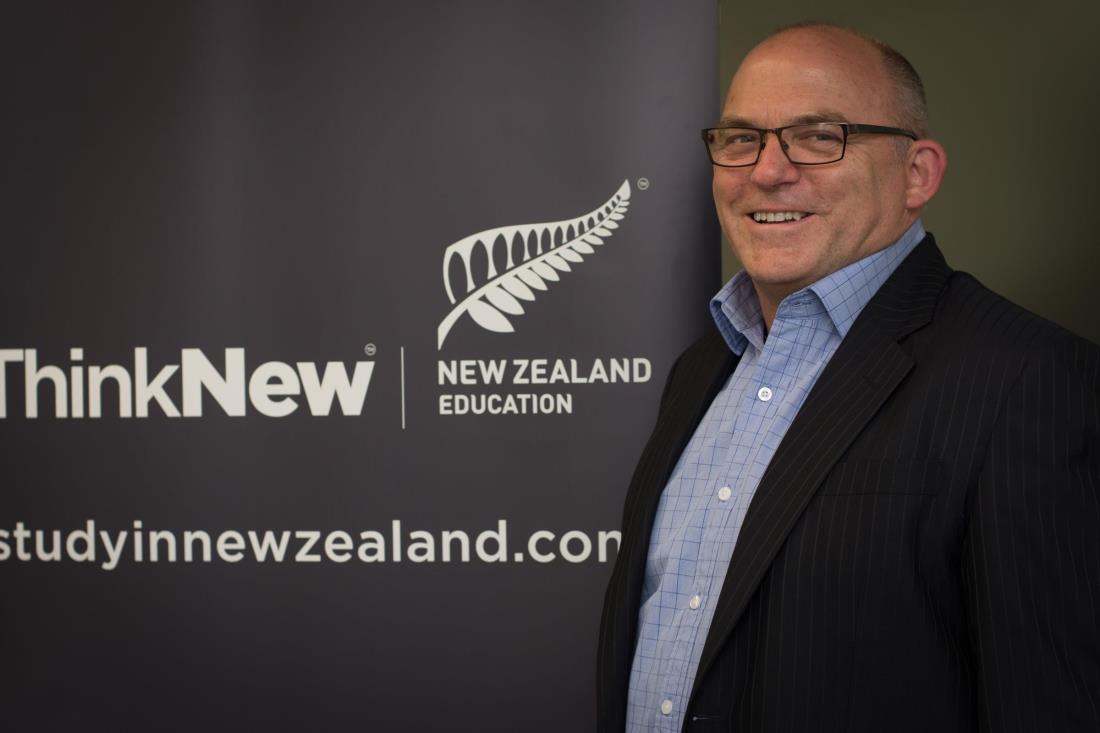
By Grant McPherson, Guest Blogger
Chief Executive, Education New Zealand
Technology provides us with an incredible mechanism to connect globally and to bring an international perspective to our education system – so much so that as more institutions offer their courses online, some international educators are concerned that it may result in fewer students choosing to go abroad. Why go abroad, when “abroad” can come to you via a computer screen?
I would argue, however, that while technology is a key enabler of high-quality learning, it will never take away from the importance of personal connection. For a student studying abroad, going overseas is a great opportunity to step outside their comfort zone and learn from the experience of living amidst a new culture and people. In a way, the country itself becomes the classroom and ignites their senses.
The courses students take are only one part of the education experience. Studying abroad opens minds and hearts. It teaches young people to be independent, to think differently, and to take on a more global outlook.
Technology does have a key role to play in study abroad, beginning well before students land in their host country. Students can research prospective destinations online, use social media, and through virtual and augmented reality even “experience” a simulated country to prepare for what awaits them. All this helps students to be much better informed.
Study abroad also helps better prepare students for a work landscape that will continue to be heavily influenced by technology, which is rapidly creating and replacing jobs. Today’s students need every possible advantage to differentiate themselves in an ever-changing world, as automation makes rote knowledge less important than the ability to think critically and relate well to others. Just as we’re preparing our young people for jobs that don’t yet exist, people already in the workforce now need to become life-long learners in order to adapt as jobs rapidly change.

We know that international education impacts employability. It helps the learner, educator and business. Gaining an Employment Edge: The Impact of Study Abroad on 21st Century Skills & Career Prospects reported that “studying abroad has an overall positive impact on the development of a wide range of job skills, expands career possibilities, and has a long-term impact on career progression and promotion.”
Being able to appreciate the cultural nuances of a country through living and studying abroad is something that an online course cannot replicate. Emotional and cultural intelligence are skills that can only be learned through life experiences. Technology cannot replace a robust classroom discussion or debate or the need to relate well to others, a crucial competency in today’s interconnected world.
These are things we need to be thinking about as our world becomes increasingly digital and connected.
New Zealand, home to 4.7 million people, is well-aware of these challenges. We have a highly rated education system with a technology-rich curricula focused on critical thinking, problem-solving and teamwork. A recent independent report by the Economist’s Intelligence Unit rated New Zealand’s education as the best in the world for preparing students for the future.
These strengths are what Education New Zealand (ENZ), New Zealand’s government agency for international education, uses to attract students from all around the world. We have been working consistently to bring about real-life, student exchanges to New Zealand in a world that is increasingly focused on digital connectivity.
Last year, ENZ signed an agreement with the U.S. Department of State Bureau of Educational and Cultural Affairs (ECA) agreement to cooperate on the prestigious Benjamin A. Gilman International Scholarship. The Gilman is aimed at students who might not otherwise have the opportunity to study abroad and will support 10 scholars to study abroad in New Zealand.
Our ENZ brand is “Think New,” because an international education offers a fresh approach to learning. We demonstrate to young people how living and learning alongside people from other countries exposes them to different world views and ways of thinking. With growing numbers of enterprises operating internationally, students need to be culturally astute to succeed in an interconnected world. What better way to learn about the world than by taking part in it first-hand!
We all need to ensure international students are provided with high-quality, internationally enabled education. Equally, we need to be committed to helping create great global citizens – digitally savvy, well-rounded contributors who have empathy for others’ beliefs and cultural differences.
In New Zealand we have a well-known saying: He aha te mea nui o te ao? He tangata, he tangata, he tangata. This translates to ‘What is the most important thing in the world? It is people, it is people, it is people.’ Technology can support international education but it will never replace the need for human connection.
Education New Zealand is a Generation Study Abroad Country Partner.